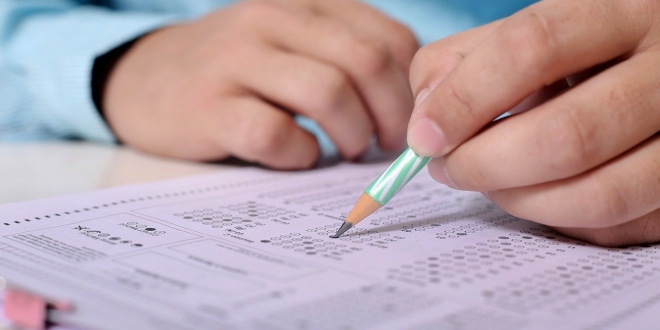The National Education Union has called on the government to take action, including a “two-week circuit breaker over half term”, as new figures show half of secondary schools in England sent pupils home last week.
The latest school attendance figures show that almost half of all secondary schools in England sent home one or more pupils because of COVID-19 last week – with pupils self-isolating in 46% of secondary schools and 16% of primary schools.
The new figures show that 5% of schoolchildren in England are currently missing school because of coronavirus outbreaks – which amounts to around 400,000 pupils in total.
These latest weekly figures use a new way of showing how attendance in school has been affected during the pandemic, counting how many schools have at least one pupil having to self-isolate. They show that 21% of all schools – both primary and secondary – sent home one or more children last week, with 13% sending home 30 or more pupils.
Responding to the figures, the NEU said it is now time for government action to halt the “disruption to children and young people’s education” and says the government’s decision to go ahead with next year’s GCSE and A-Level exams looks increasingly “untenable”.
NEU joint general secretary Kevin Courtney said: “With almost most half of secondary schools and one in six primary schools affected by positive COVID cases and having to send children home, it is clearly time that action is taken to prevent this situation escalating even more out of control. The government cannot turn away from this data.
“The NEU has supported calls for a two-week circuit breaker over half term both to enable government to get control of trace, track and test and to lower the infection rate making it easier for the system to cope. The government urgently needs to look at this and at other ways of reducing transmission in schools.
“Increasing numbers of pupils and whole year bubbles having to isolate is causing a great deal of disruption to children and young people’s education and is making the government’s decision to stick to end of year GCSE and A level examinations, with the only change being a 3-week delay ever more untenable. It needs to relook both at next year’s exams and the equally untenable suggestion that SATs will go ahead as usual.
“The government must of course also guarantee the expansion of free school meals and holiday food provision for the disadvantaged during any such circuit breaker as well as during the half-term holiday.
“Acting now could reduce the levels of disruption in the coming months and enable schools and colleges to operate in the most effective way possible”.
However, the Department for Education said that the figures show only “a small proportion of pupils are self-isolating” which was “similar to previous weeks”.
Appearing before the Education Select Committee on Tuesday morning, England’s Schools Minister Nick Gibb said the change in data published on attendance provided more “granular detail”.
“So the attendance data that’s published this afternoon will be on a different timeline from the data we’ve published so far, because the data we’ve collected so far asks schools to report whether they have sent home groups of pupils.”






Facebook Comments